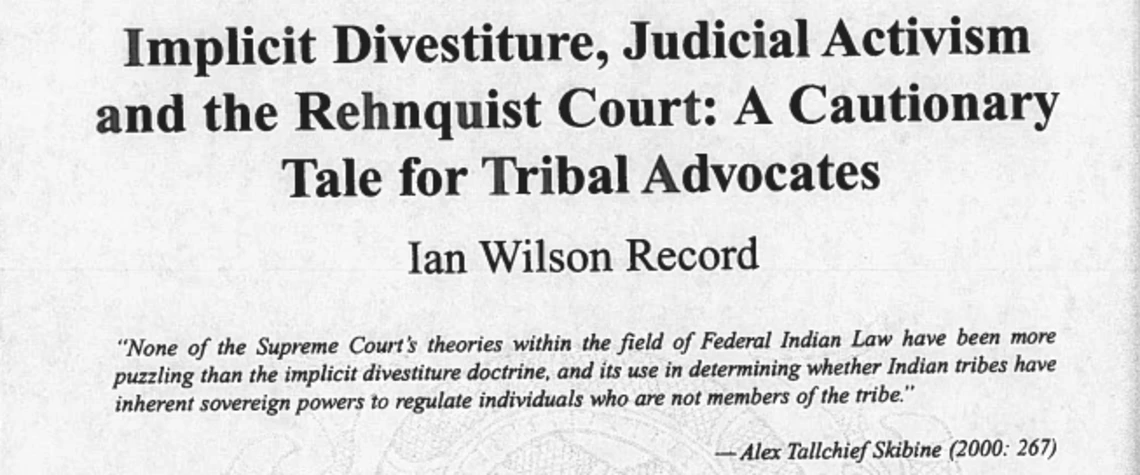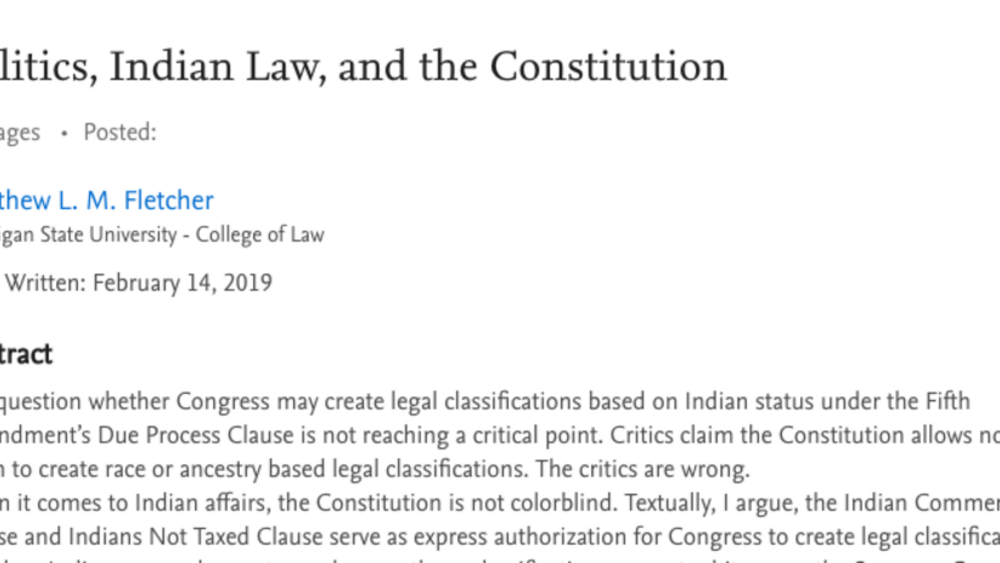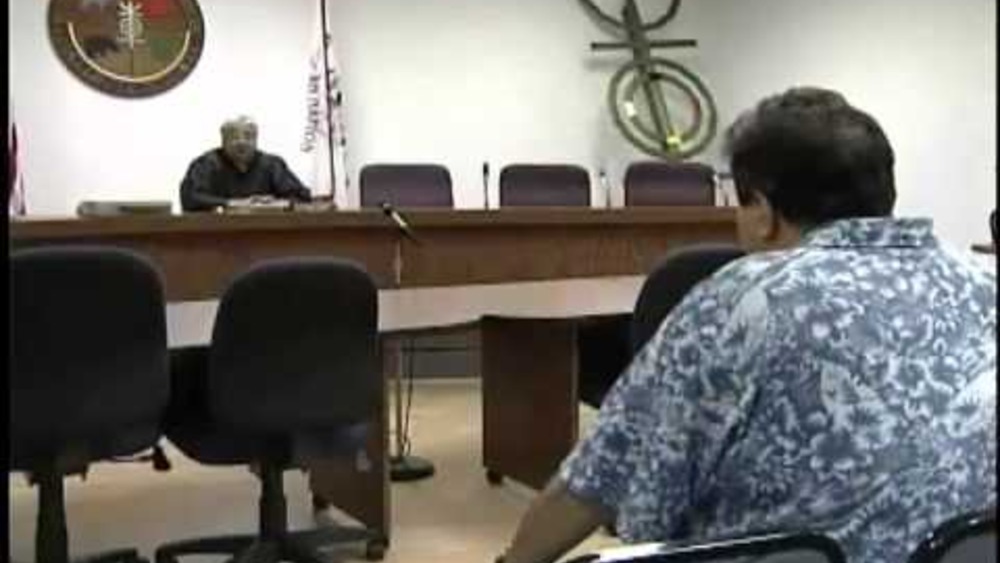Many tribal advocates have likened the legal corpus known as Federal Indian Law to a pendulum that swings back and forth under the forceful hand of the United States government and its political inclinations at any given moment. While this swinging pendulum has brought great uncertainity and volatility to the status, rights and powers of Indian tribes over the past centuries, it has managed to maintain at least a basic degree of stability and coherence through its adherence to those fundamental legal principles articulated in the Marshall Trilogy of U.S. Supreme Court cases in the 1830s and the subsequent enunciation of the inherent/reserved rights doctrine of Indian sovereignty. However, the Supreme Court's constructions of the implicit divestiture doctrine over the past 25 years has essentially turned Federal Indian Law on its head, severing tribal sovereignty from its "historical moorings" (Getches 1996: 1573) and casting servious doubt on the viability of jurisdictional powers of Indian tribes....
Additional Information
Record, Ian Wilson. "Implicit Divestiture, Judicial Activism and the Rehnquist Court: A Cautionary Tale for Tribal Advocates." Red Ink: A Native American Student Publication. Vol. 9, No. 2. American Indian Studies Program, The University of Arizona. Tucson, Arizona. 2001: 100-106. Article.




